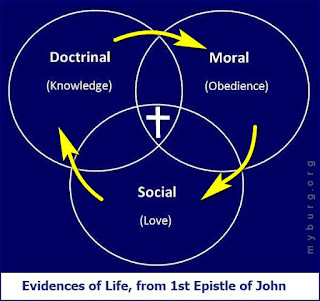Bible reading for Dec 4.
2 Chronicles 3-4.
"He set up the pillars in front of the temple, one on the south, the other on the north; that on the south he called Jachin, and that on the north Boaz." (3:17)
BUILDING THE TEMPLE. These two chapters describe the structure and furnishings of the temple Solomon builds. It's the same basic plan as the Tabernacle that Moses constructed. Notice the imagery in the temple which recalls both the early chapters of Genesis (e.g., cherubim, fruit trees, etc.) and the later chapters of Revelation (e.g., gold, precious materials, the cubical layout of the most holy place, etc.). All of these images reveal the unity of Scripture and tie together the story of redemption. Christ himself is the sacrifice, the sea of cleansing, the light and bread of life, our priest, and the one who brings us into the presence of God. He restores the garden we lost and constructs a city of eternal glory.
REFLECT. I find it interesting that the two bronze pillars (3:17) are given names, as if they were persons. Jachin ("he shall establish") and Boaz ("in its strength") were pillars of witness (see ISBE), that is, not used to support the building but to stand as symbols of steadfast strength in the Lord. The Apostles are called pillars (Gal 2:9) and the church is called the pillar of the truth (1 Tim 3:15). Jesus' words also reflect on this image: "The one who conquers, I will make him a pillar in the temple of my God. Never shall he go out of it, and I will write on him the name of my God, and the name of the city of my God, the new Jerusalem, which comes down from my God out of heaven, and my own new name" (Rev 3:12). People sometimes use the phrase, "a pillar of the community", to designate someone who is stable, trustworthy, having integrity, and upholding the standards of the community. Would this describe you and me? Do we represent the Kingdom well? Do we stand solid for the Lord?
===============
1 John 3.
"See what kind of love the Father has given to us, that we should be called children of God; and so we are. The reason why the world does not know us is that it did not know him. Beloved, we are God's children now, and what we will be has not yet appeared; but we know that when he appears we will be like him, because we shall see him as he is. And everyone who thus hopes in him purifies himself as he is pure." (3:1-3)
CHILDREN OF GOD. Being a beloved child of God, awaiting Christ's return, will have a purifying effect upon us. As we have seen in the previous days' readings, the Apostle John is showing us that the new birth results in changed lives -- we think differently (we love the truth); we live differently (we love God's ways); and we relate to others differently (we love God's people). This is our new DNA as children of God. As seen in the diagram below (I added some arrows), John writes in a kind of circular fashion, moving back and forth between these great themes. In this chapter he comes back to the moral dimension (practicing righteousness, vv 1-10), and then to the social dimension (love, vv 11-18), and then back again to the moral (keeping his commandments, vv 19-24).
REFLECT. In this chapter we learn that love is to be practical (meeting needs), and practiced not just toward a group but also toward individuals (v 17). We cannot say, as some have said, "I love humanity. It's people I can't stand." We need to be asking ourselves, how can I practically demonstrate love for each person God brings into my life?
Image credit. Illustration of Solomon's Temple from the ESV Study Bible (Crossway Bibles, 2008). We are following the Robert Murray M'Cheyne (RMM) two-year reading schedule, as arranged by D. A. Carson. Scripture quotations, unless otherwise noted, are from The ESV® Bible (The Holy Bible, English Standard Version®), copyright © 2001 by Crossway, a publishing ministry of Good News Publishers. Used by permission. All rights reserved. One recommended resource is NETBible.org, a ministry of bible.org.


Comments